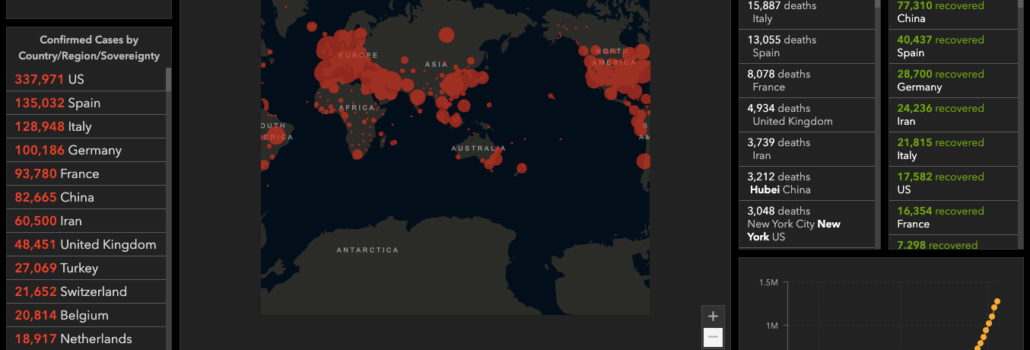Google Penguin’s Shift to ‘Continuous’ Updates – What Does it Mean for SEO?
Is it just me, or has the SEO world felt like Penguins on Parade recently? Penguin 3.0 was released in mid-October, and we heard it would be rolling out for a few weeks. But eight weeks later, it’s still rolling. The SEO community is tacking on dots and digits, even though many of the refreshes that we’re noticing are still unconfirmed by Google.
So what’s going on with Penguin? What does it mean for the big picture of SEO, and — more urgently — what does it mean for next week’s To Do list?
Penguin 3.0 Goes ‘Continuous’?
We wanted faster Penguin updates, and now we’re getting them. Although Google got the last laugh by rolling out updates over Thanksgiving weekend — which they have avoided and shunned in the past.
@Bessian Actually, we try to minimize major updates right before the holidays.
— Matt Cutts (@mattcutts) December 18, 2013
(Unless it was meant to be some strange holiday gift. I know all the stock imagery of penguins I saw that weekend really got me in the Christmas spirit …)
A quick timeline for the uninitiated:
- Penguin 3.0 — October 17 — Not an update, a “refresh.” We were told it would roll out over a few weeks. It helped those sites that have cleaned up webspam signals, and penalized sites with new, bad links.
- Penguin 3.1 — November 27 — Another refresh. Some webmasters saw recoveries from Penguin 3.0.
- Penguin 3.2 — December 2 — This refresh reversed the gains that some saw over the Thanksgiving weekend.
- Penguin 3.3 — December 5 — Refresh reversed the reversals.
- Penguin 3.4 — December 6 — Who can even keep track anymore? Previous reversals are un-reversed. I think.
I imagine it looked something like this:
Google has only confirmed the first two, but the SEO community is monitoring progress pretty closely.
SEL inquired about the Thanksgiving updates, to which Google replied:
That last big update is still rolling out — though really there won’t be a particularly distinct end-point to the activity, since Penguin is shifting to more continuous updates. The idea is to keep optimizing as we go now.
That means no more big data pushes for Penguin as Google starts rolling out updates and refreshes within their live ranking processes.
Will 2015 Be the Year of the Penguin?
There are encouraging and frustrating implications in the idea of continual Penguin updates/refreshes.
Anyone still engaged in black hat SEO practices will bear the brunt of the frustrations. Continuous updates mean spammy links won’t be able to hide for very long. There also may be some minor frustrations for those sites actually affected, as Google keeps trying to slip live updates into Penguin unannounced.
On the other hand, continuous updates will mean shorter sentences for those penalized for bad links, who take the time to fix them. Penalties will probably be removed faster, and rankings fixed sooner.
SEO To Do for Forever-Penguin
For those whose SEO has been built on a solid strategy of natural links, the infinite Penguin shouldn’t be too much of a concern. Otherwise, a backlink audit should be pretty near the top of the 2015 To Do list.
-
- Check up on your inbound links. Any links that you paid for, traded for, or got from an SEO company that promised you hundreds of links in a month, are seriously suspect. Links from irrelevant sites or stuffed with keywords are also on the line. Identify all those spammy links.
- Get bad links taken down, and disavow the rest. For links you’re certain are spammy, contact webmasters and ask them to take those links down. And disavow the rest in Google Webmaster Tools.
- Start building natural links. Relationships. Uniquely engaging content. Make a splash. Start a controversy. Create a comprehensive resource lists that readers will appreciate and share. Publish case studies about your best clients that make them look great. Participate on HARO and get interviewed… the list goes on. Time to get to work.
If you’re ready for a really in-depth link audit, Moz has some very thorough instructions. And does earning “natural links” sound impossible or just relentlessly frustrating? It’s quite possible, but it takes work!
Conclusion: Bad Links Are Still Bad
We’re keeping a close eye on Penguin, with everyone else, but in the long run it’s important to remember that Google’s end game still hasn’t changed. They’re working out how to do it better, and while it’s annoying that the Penguin updates are changing so quickly, there really isn’t much anyone can do about it.
Moral of the story: Penguin’s attack on spammy links will continue.
What's Next?
Profound Strategy is on a mission to help growth-minded marketers turn SEO back into a source of predictable, reliable, scalable business results.
Start winning in organic search and turn SEO into your most efficient marketing channel. Subscribe to updates and join the 6,000+ marketing executives and founders that are changing the way they do SEO:
And dig deeper with some of our best content, such as The CMO’s Guide to Modern SEO, Technical SEO: A Decision Maker’s Guide, and A Modern Framework for SEO Work that Matters.




